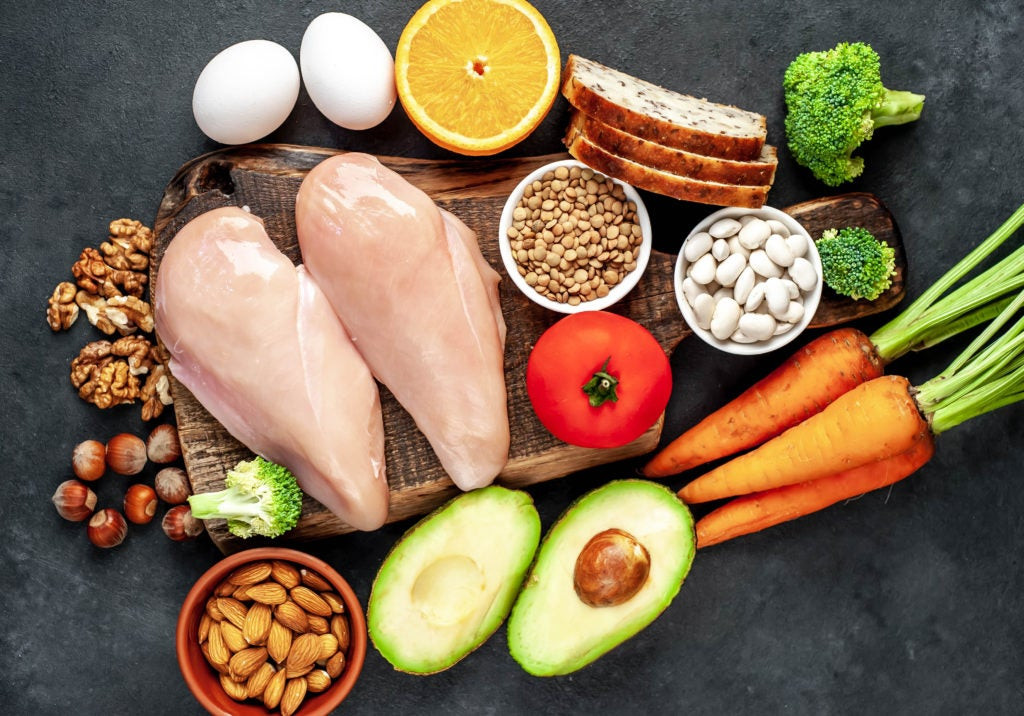Niacinamide, also known as nicotinamide, is one of two major forms of vitamin B3 (niacin). It’s a water-soluble vitamin crucial for many aspects of health, playing a vital role in energy metabolism and cellular function. Getting enough niacinamide through your diet is essential for maintaining overall well-being. Fortunately, niacinamide is found in a wide variety of foods, making deficiency relatively rare for those consuming a balanced diet.
 разнообразные продукты, богатые ниацином или витамином B3, включая бобовые, орехи, семена, морковь, курицу, авокадо, яйца, зерновые, брокколи
разнообразные продукты, богатые ниацином или витамином B3, включая бобовые, орехи, семена, морковь, курицу, авокадо, яйца, зерновые, брокколи
Niacinamide is important because it is a precursor to NAD+ and NADP+, two coenzymes essential for hundreds of metabolic processes in your body. These coenzymes are involved in energy production, DNA repair, and antioxidant defense. Ensuring adequate intake of niacinamide through food supports these critical bodily functions.
When considering dietary sources of niacinamide, it’s helpful to think about food groups rather than isolated ingredients. Many foods naturally contain niacin, which the body can readily convert to niacinamide as needed. Therefore, focusing on niacin-rich foods is an effective way to boost your niacinamide intake.
Meat, particularly red meat, is an excellent source of niacinamide. Beef, beef liver, and pork are among the top choices. These meats are not only rich in niacinamide but also provide other essential nutrients, making them valuable additions to a balanced diet.
Poultry is another significant source of niacinamide. Chicken and turkey, especially the breast meat, offer a good amount of this vitamin. Incorporating poultry into your meals is a lean and versatile way to increase your niacinamide consumption.
Fish is also known for being high in niacinamide. Varieties like tuna, salmon, and sardines are particularly good sources. Oily fish not only provide niacinamide but also beneficial omega-3 fatty acids, contributing to overall health.
For those seeking plant-based sources of niacinamide, there are several excellent options. Brown rice, especially when unrefined, retains more of its natural vitamins, including niacinamide. Fortified cereals and breads can also contribute to your niacinamide intake, although it’s wise to choose whole-grain options when possible.
Nuts and seeds are good plant-based sources of niacinamide. Peanuts, sunflower seeds, and almonds are among the nuts and seeds that contain notable amounts of this vitamin. These can be enjoyed as snacks or incorporated into meals to boost niacinamide levels.
Legumes, such as lentils, beans, and peas, also offer niacinamide. These plant-based protein sources are versatile and can be used in a variety of dishes, contributing to both protein and niacinamide intake.
Even some fruits and vegetables contribute to your daily niacinamide intake. Bananas, avocados, carrots, and broccoli, while not as concentrated in niacinamide as meat or fish, can still be part of a niacinamide-rich diet when consumed as part of a varied and balanced eating pattern.
While severe niacinamide deficiency is rare in developed countries due to food fortification and the wide availability of niacin in foods, ensuring adequate intake is still important. Focusing on a diet rich in the food sources mentioned above is the best way to maintain healthy niacinamide levels and support overall health and well-being.

